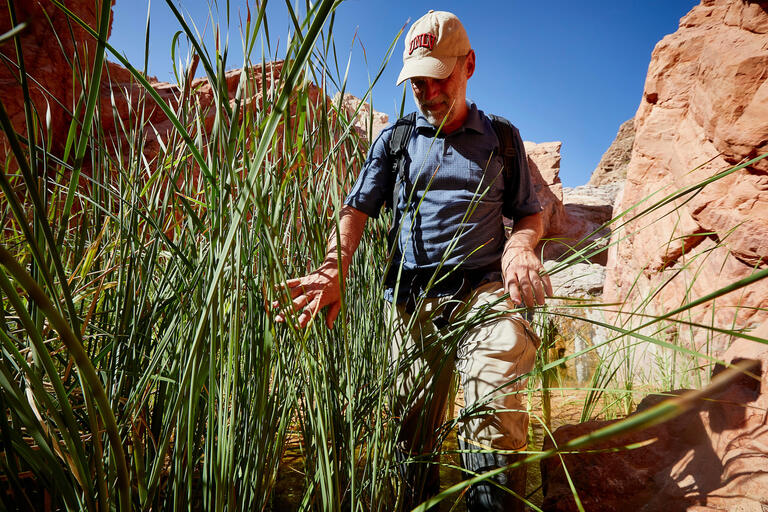Jef Jaeger
Biography
Life sciences professor Jef Jaeger specializes in conservation biology, ecology, population biology, and phylogeography. In addition to research, his passions include teaching biological sciences to undergraduate students who are pursuing degrees outside of sciences.
Since 1991, Jaeger has published over 25 publications highlighting desert wildlife — including bighorn sheep, amphibians, and more — and climate change indicators in the American West. Jaegar's publications have been recognized by publications including Frontiers of Ecology and Evolution and ScienceDaily.
Jaeger has received numerous fellowships and awards throughout his career at UNLV, including the College of Sciences' Outstanding Dissertation for 2006 and the U.S. Environmental Protection Agency's National Network For Environmental Management Studies (NEMS) Fellowship.
Education
- Ph.D., Biological Sciences, UNLV
- M.S., Biological Sciences, UNLV
- B.A., Environmental Studies, University of California, Santa Cruz
Jef Jaeger In The News
Articles Featuring Jef Jaeger

It's Easier Being Green
UNLV’s reintroduction effort keeps leopard frog species off the endangered list.

A Subterranean Surprise
A new species of scorpions nearly squirmed past a couple of UNLV graduate students. The story behind the Death Valley arthropod's discovery.
